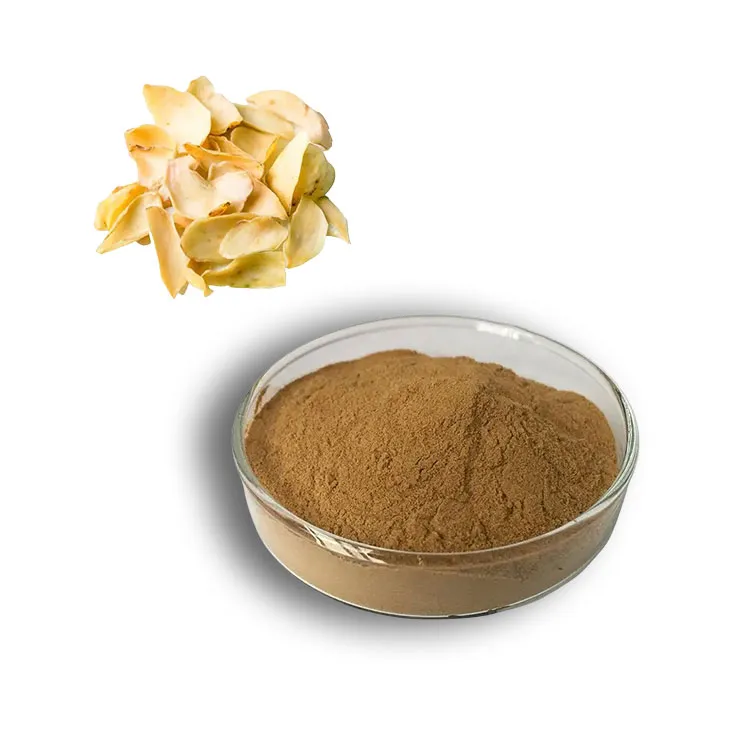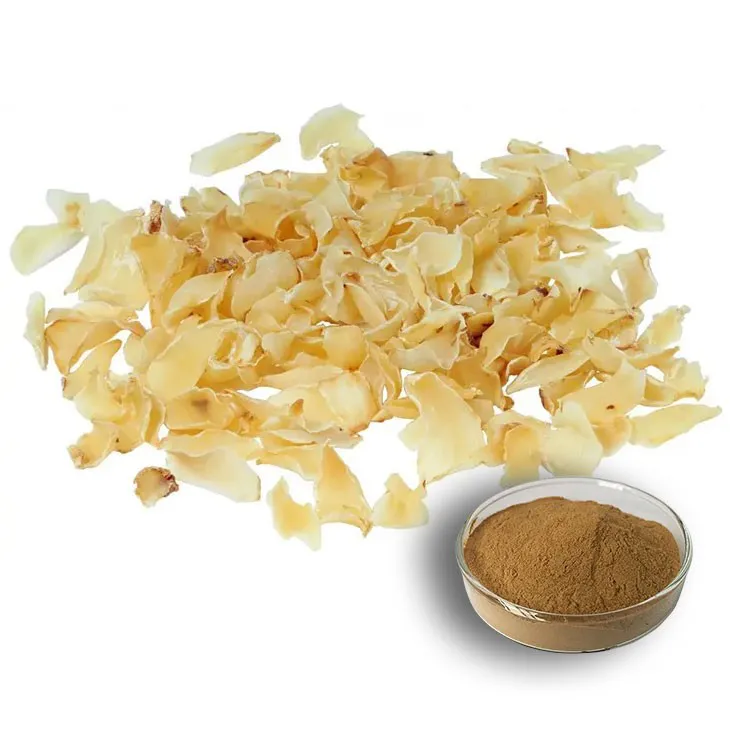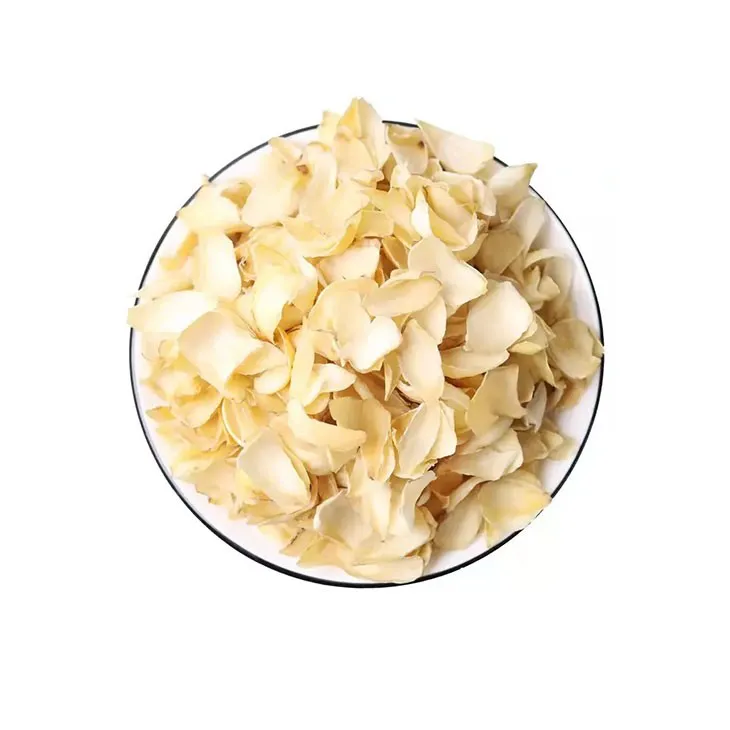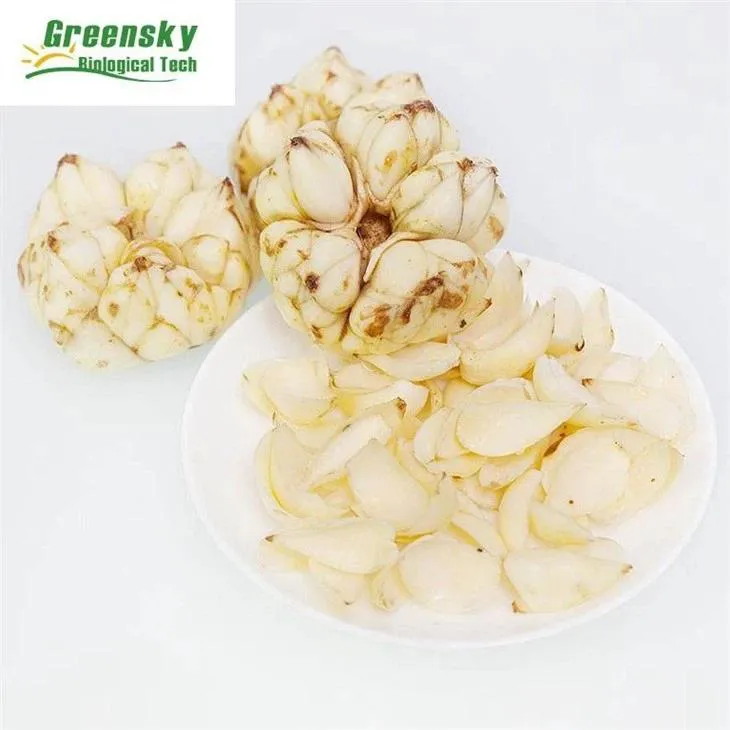- 0086-571-85302990
- sales@greenskybio.com
Have you ever heard of lily extract? Five unexpected health benefits.
2024-11-14

1. Introduction to Lily extract
Lily extract is a natural substance that has been used in traditional medicine for centuries. It is derived from various species of lilies, which are known for their beauty and fragrance. However, recent scientific research has shown that Lily extract also contains a variety of bioactive compounds that can have a positive impact on human health.

2. Antioxidant Properties
One of the most important health benefits of lily extract is its antioxidant properties. Antioxidants are substances that can combat free radicals in the body. Free radicals are unstable molecules that can cause damage to cells, DNA, and proteins. This damage can lead to a variety of health problems, including aging, cancer, and heart disease.
Lily extract contains several types of antioxidants, including flavonoids, phenolic acids, and alkaloids. These antioxidants work together to neutralize free radicals and prevent them from causing damage. By reducing the amount of free radical damage in the body, lily extract can help to slow down aging and reduce the risk of developing chronic diseases.

3. Immune System Enhancement
Another benefit of lily extract is its potential to enhance the immune system. The immune system is the body's defense against diseases, and a strong immune system is essential for maintaining good health.
Lily extract contains compounds that can stimulate the production of white blood cells, which are an important part of the immune system. These white blood cells can recognize and destroy foreign invaders, such as bacteria, viruses, and fungi. By increasing the number of white blood cells in the body, lily extract can help the body to fight against diseases more effectively.
In addition, lily extract also has anti - viral and anti - bacterial properties. These properties can help to prevent infections and reduce the severity of symptoms if an infection does occur.

4. Anti - Inflammatory Effects
Inflammation is a natural response of the body to injury or infection. However, chronic inflammation can lead to a variety of health problems, including arthritis, heart disease, and cancer.
Lily extract has anti - inflammatory effects that can help to reduce inflammation in the body. It contains compounds that can inhibit the production of inflammatory cytokines, which are molecules that play a key role in the inflammatory response.
By reducing inflammation, lily extract can help to relieve pain and swelling associated with inflammatory conditions. It can also help to prevent the development of chronic inflammatory diseases.

5. Cardiovascular Health Improvement
Lily extract may also have a positive impact on cardiovascular health. The cardiovascular system is responsible for transporting blood throughout the body, and maintaining a healthy cardiovascular system is essential for good health.
Lily extract contains compounds that can help to lower blood pressure, reduce cholesterol levels, and improve blood circulation. These effects can help to reduce the risk of developing heart disease, stroke, and other cardiovascular problems.
For example, some studies have shown that lily extract can inhibit the activity of an enzyme called angiotensin - converting enzyme (ACE), which is involved in the regulation of blood pressure. By inhibiting ACE, lily extract can help to lower blood pressure and reduce the strain on the heart.
6. Mental Well - being
In addition to its physical health benefits, lily extract may also have a positive impact on mental well - being. Mental health is an important aspect of overall health, and maintaining good mental health can improve quality of life.
Lily extract contains compounds that can have a calming and relaxing effect on the nervous system. These compounds can help to reduce stress, anxiety, and depression, and improve mood and sleep quality.
For example, some studies have shown that lily extract can increase the levels of neurotransmitters such as serotonin and dopamine in the brain. These neurotransmitters are involved in the regulation of mood, and increasing their levels can help to improve mood and reduce symptoms of depression.
7. Conclusion
In conclusion, lily extract is a natural substance with a variety of unexpected health benefits. Its antioxidant properties, immune - enhancing effects, anti - inflammatory effects, cardiovascular health benefits, and positive impact on mental well - being make it a promising natural remedy for a variety of health problems.
However, more research is needed to fully understand the mechanisms of action of lily extract and to determine its safety and effectiveness in humans. In addition, it is important to note that lily extract should not be used as a substitute for medical treatment, and anyone with a medical condition should consult a healthcare provider before using lily extract.
FAQ:
What are the main bioactive compounds in lily extract?
There are several main bioactive compounds in lily extract, such as polysaccharides, alkaloids, and flavonoids. These compounds contribute to its various health - promoting properties.
How does lily extract combat free radicals?
The antioxidant properties of lily extract, mainly due to its bioactive compounds like flavonoids, can neutralize free radicals. Free radicals are unstable molecules that can damage cells, and the antioxidants in lily extract donate electrons to these free radicals, making them more stable and thus preventing oxidative damage that is associated with aging and various diseases.
Can lily extract really boost the immune system?
Yes, it may enhance the immune system. Some components in lily extract can stimulate the production and activity of immune cells, such as lymphocytes and macrophages. These cells play crucial roles in recognizing and eliminating foreign pathogens, thus helping the body better defend against diseases.
What specific anti - inflammatory effects does lily extract have?
Lily extract can reduce inflammation by inhibiting the production of pro - inflammatory cytokines and mediators. For example, it may suppress the activity of enzymes involved in the inflammatory response. This helps to alleviate inflammation - related symptoms in the body, whether it is due to acute injuries or chronic inflammatory conditions.
How does lily extract improve cardiovascular health?
Lily extract may improve cardiovascular health in multiple ways. It could help lower blood pressure by relaxing blood vessels. Additionally, it may have a positive effect on lipid metabolism, reducing levels of bad cholesterol (LDL) and triglycerides, which are risk factors for heart disease.
Related literature
- The Health - Promoting Properties of Lily Extract: A Comprehensive Review"
- "Lily Extract: Uncovering its Role in Antioxidant Defense and Health"
- "Bioactive Compounds in Lily Extract and Their Impact on Immune and Cardiovascular Health"
- ▶ Hesperidin
- ▶ Citrus Bioflavonoids
- ▶ Plant Extract
- ▶ lycopene
- ▶ Diosmin
- ▶ Grape seed extract
- ▶ Sea buckthorn Juice Powder
- ▶ Fruit Juice Powder
- ▶ Hops Extract
- ▶ Artichoke Extract
- ▶ Mushroom extract
- ▶ Astaxanthin
- ▶ Green Tea Extract
- ▶ Curcumin
- ▶ Horse Chestnut Extract
- ▶ Other Product
- ▶ Boswellia Serrata Extract
- ▶ Resveratrol
- ▶ Marigold Extract
- ▶ Grape Leaf Extract
- ▶ New Product
- ▶ Aminolevulinic acid
- ▶ Cranberry Extract
- ▶ Red Yeast Rice
- ▶ Red Wine Extract
-
Panax Ginseng Leaf Extract
2024-11-14
-
Nettle leaf extract
2024-11-14
-
Polygonum Cuspidatum Extract
2024-11-14
-
Curcuma Longa Extract
2024-11-14
-
Tamarind extract powder
2024-11-14
-
Alfalfa Meal
2024-11-14
-
Fenugreek Extract Powder
2024-11-14
-
Tongkat Ali Extract
2024-11-14
-
Cranberry Extract
2024-11-14
-
Lavender Extract
2024-11-14





















